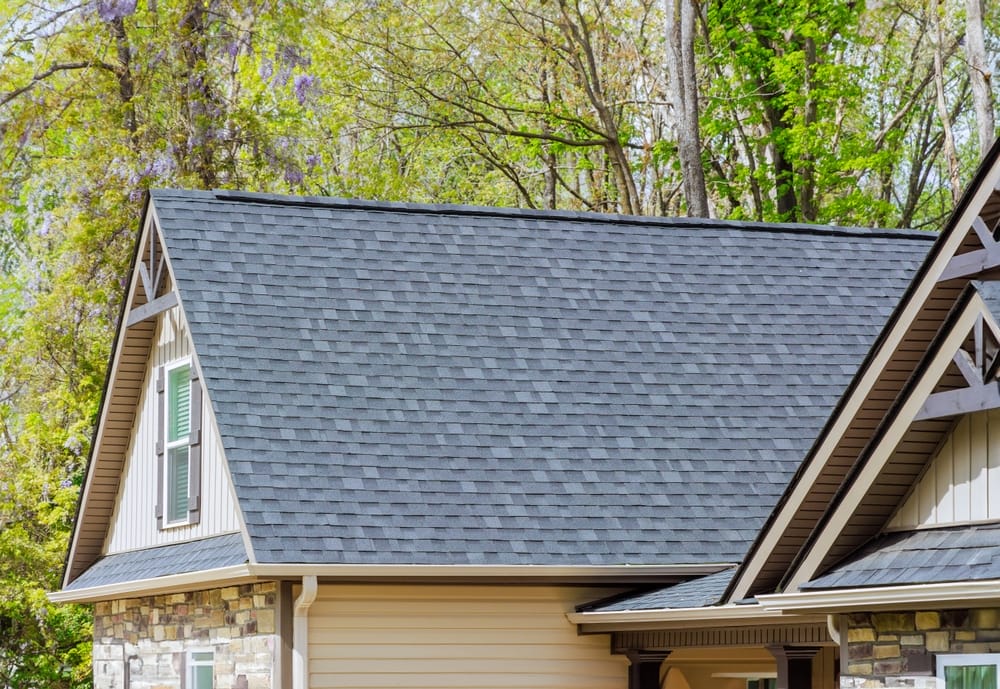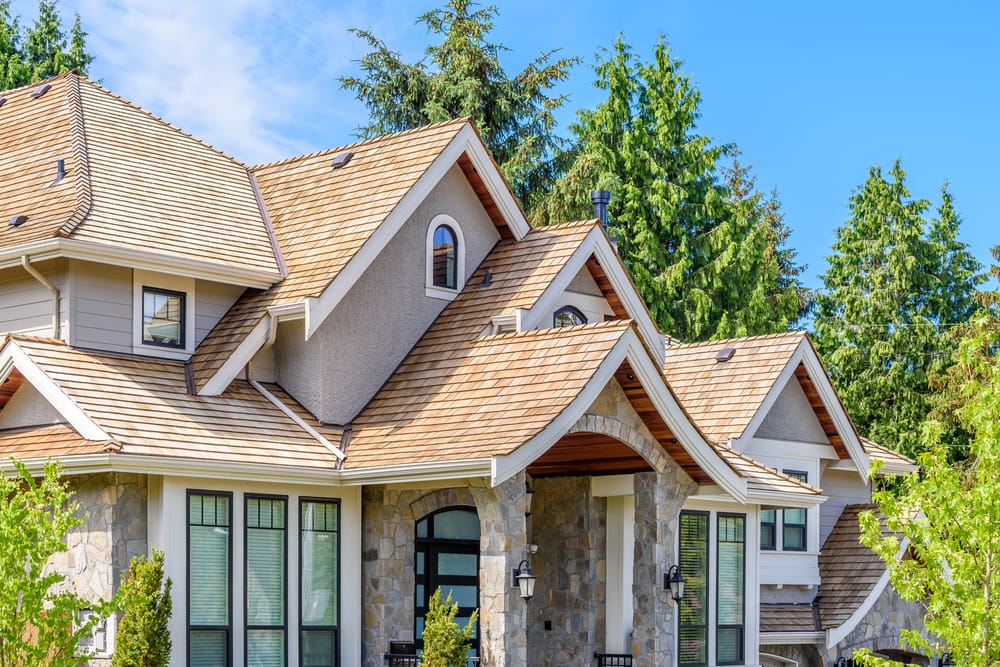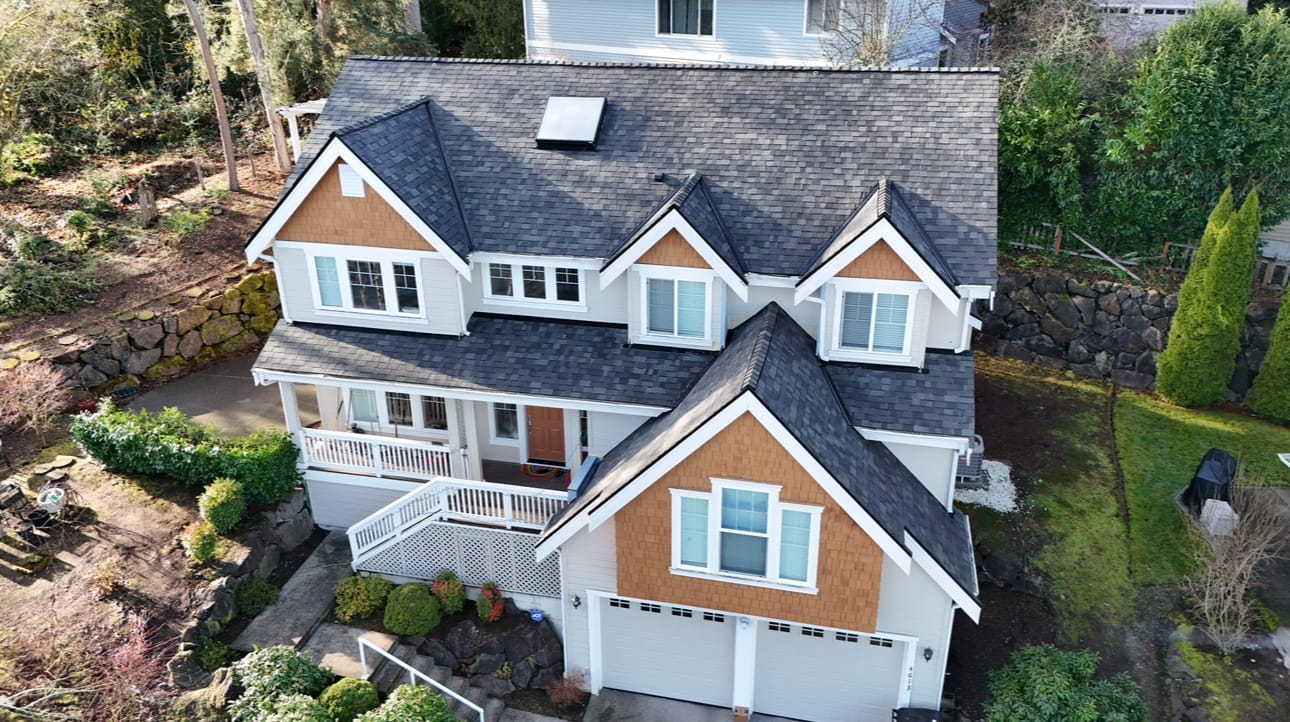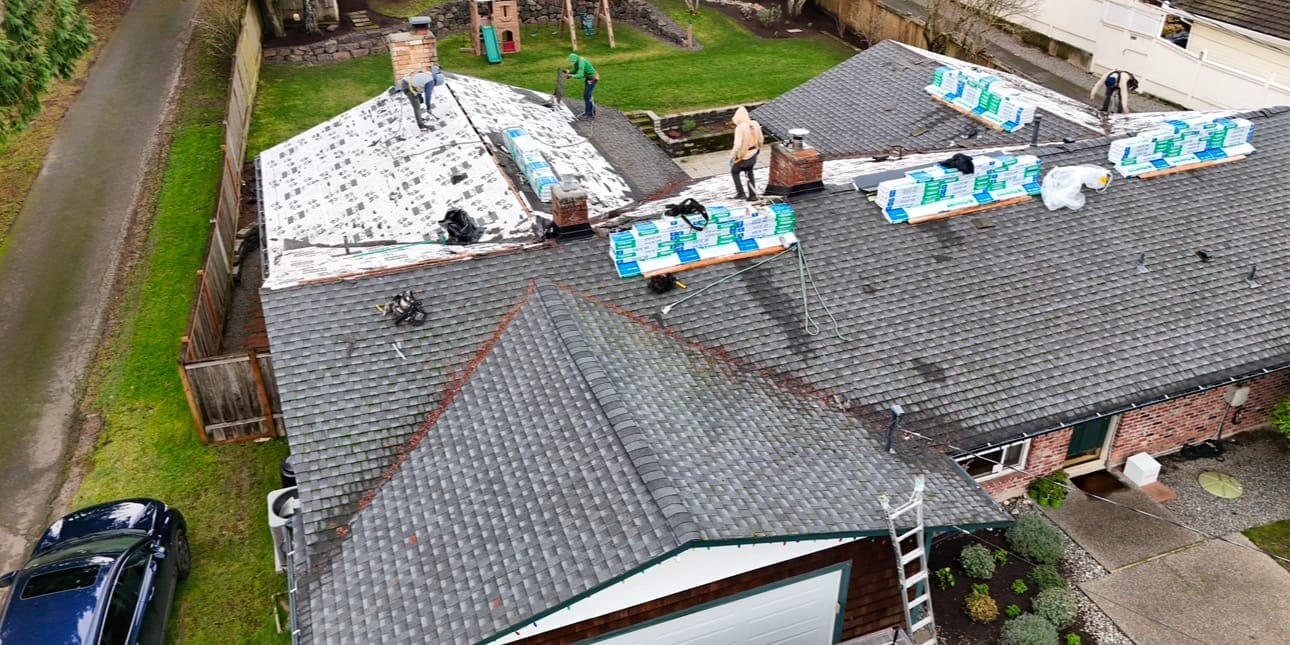Types of Shingle Roofing Materials: Comparing Asphalt, Wood, and Composite Shingles
By K Single Corp Roofing & General Contractor
When it comes to protecting your home, few elements are as important as the roof over your head. Shingles are one of the most popular roofing materials because they’re affordable, versatile, and stylish. But the term “shingle” doesn’t refer to just one type of roofing material—there are several options available, each with its unique qualities.
This guide will walk you through the three main types of shingle roofing materials—asphalt, wood, and composite—so you can make an informed decision for your home. We’ll explore their makeup, the pros and cons of each type, and how they compare in terms of durability, cost, lifespan, weather resistance, maintenance, and overall appearance. Keep reading about all things shingle roofing.

Asphalt Shingles
What Are They?
Asphalt shingles are the most common type of roofing material in the United States. They are made from a base (usually fiberglass or organic felt) coated with asphalt, then topped with mineral granules for additional weather resistance and aesthetic appeal.
Types of Asphalt Shingles
- 3-Tab Shingles: Lightweight, flat, and uniform in design, these are the most budget-friendly asphalt shingles.
- Architectural Shingles: A thicker and more dimensional option that offers a modern look and improved durability.
- Luxury Shingles: High-end shingles designed to mimic natural materials like slate or cedar, offering premium style and performance.
Pros and Cons of Asphalt Shingles
Pros:
- Affordable: Asphalt shingles are the most cost-effective roofing material, ideal for budget-conscious homeowners.
- Variety: Asphalt shingles are available in a wide range of colors and styles to suit different home designs.
- Easy Installation: Quick to install, which can help reduce labor costs.
- Lightweight: Does not require additional structural support.
- Recyclable: Asphalt shingles can be recycled, reducing their environmental impact.
Cons:
- Durability: While durable enough for most climates, they may wear out faster in harsh weather conditions (like extreme heat or hail).
- Vulnerable to Wind Damage: Generally speaking, asphalt shingles are more susceptible to blowing off in strong storms or high winds.
- Susceptible to Cracking: Extreme cold or hot temperatures can cause asphalt shingles to become brittle, cracked, or warped.
- Aesthetic Wear: Over time, the color of asphalt shingles can fade due to sun exposure, making the roof appear worn and less attractive.
- Shorter Lifespan: Typically lasts 20–30 years, which is shorter compared to other roofing materials like metal.

Wood Shingles
What Are They?
Wood shingles are made from natural materials like cedar, redwood, or pine. Known for their timeless and rustic appearance, wood shingles are often chosen for homes aiming for a more traditional or eco-friendly look. They can be machine-cut (for uniformity) or hand-split (for a more rugged aesthetic).
Types of Wood Shingles
- Cedar Shingles: Cedar is the most popular material due to its natural oils, which provide resistance to pests and decay.
- Redwood Shingles: Similar to cedar but with a reddish tint, they offer an equally durable and classic appearance.
Pros and Cons of Wood Shingles
Pros:
- Aesthetics: Wood shingles provide a warm, elegant and natural look that stands out from synthetic materials.
- Timeless Appeal: Wood shingles tend to age gracefully, developing a distinctive patina over time that many homeowners find appealing.
- Durability: When properly maintained, wood shingles can last 30 to 50 years or longer, depending on the wood type and climate.
- Eco-Friendly: Many wood shingles are made from sustainable sources and can be recycled at the end of their lifespan.
Insulation: Offers better thermal insulation compared to asphalt or composite shingles.
Cons:
- Cost: Typically more expensive than asphalt shingles.
- High Maintenance: Requires regular treatment to prevent moss, moisture damage, and pest infestations.
- Vulnerability to Weather: Wood shingles can be more susceptible to weathering, cracking, and splitting over time, especially in regions with extreme temperatures or high humidity.
- Potential for Mold and Mildew: If not properly treated or maintained, wood shingles can develop mold or mildew in damp conditions
- Flammability: Untreated wood shingles are more susceptible to fire, though fire-resistant options are available.

Composite Shingles
What Are They?
Composite shingles are made from a combination of materials such as recycled plastics, polymers, and fiberglass. They are designed to mimic the look of natural materials (like wood or slate) while providing added durability and lower maintenance.
Types of Composite Shingles
- Synthetic Slate Shingles: Designed to replicate the elegance of natural slate without the weight or cost.
- Synthetic Cedar Shingles: Offers the warm look of cedar wood with improved resistance to fire and decay.
Pros and Cons of Composite Shingles
Pros:
- Durability: Highly resistant to cracking, warping, mold, and mildew.
- Lightweight: Can mimic natural materials like slate without requiring structural reinforcement.
- Low Maintenance: Does not require the upkeep associated with natural materials.
- Eco-Friendly: Often made from recycled materials, contributing to a sustainable choice.
Cons:
- Cost: Generally more expensive than asphalt shingles but less costly than natural slate or wood.
- Aesthetic Limitations: While composite shingles can mimic the look of other materials (like wood or slate), they may not always match the authenticity and appeal of the real thing,
- Limited Availability: May not be as widely available as asphalt or wood shingles, depending on the region.
Comparing Asphalt, Wood, and Composite Shingles
Material Makeup & Durability
- Asphalt: Fiberglass or organic base with an asphalt coating. Durable for most weather conditions but less so in extreme environments.
- Wood: Natural materials with inherent charm but prone to moisture and pest damage without proper maintenance.
- Composite: Synthetic materials designed for maximum durability with high resistance to cracking and mold.
Cost
- Asphalt: Most budget-friendly option, ideal for homeowners seeking affordability.
- Wood: Mid-to-high price range, depending on seasoning and fire treatment.
- Composite: Higher upfront cost but offers long-term value due to durability and low maintenance.
Lifespan
- Asphalt: 20–30 years.
- Wood: 25–35 years when well-maintained.
- Composite: Often the longest lifespan, ranging from 30–50 years.
Weather Resistance
- Asphalt: Handles most climates but may degrade more quickly in extreme conditions.
- Wood: Naturally insulating but susceptible to moisture unless treated.
- Composite: Excellent weather resistance across the board, including UV and hail.
Maintenance
- Asphalt: Minimal maintenance required; periodic inspection suggested.
- Wood: Requires regular cleaning, sealing, and treatments.
- Composite: Extremely low maintenance, retaining its appearance and performance for decades.
Appearance
- Asphalt: Wide variety of colors and styles but less authentic in texture.
- Wood: Naturally beautiful with a warm, rustic appearance.
- Composite: Mimics high-end materials like slate and cedar with convincing detail and texture.
Making the Right Choice for Your Roof
Choosing the right shingle roofing material depends on your budget, aesthetic preferences, and long-term priorities. Here are some recommendations:
- If you’re looking for affordability and easy installation, asphalt shingles are a fantastic choice.
- If you value a rustic, natural look and are willing to invest in maintenance, wood shingles stand out.
- If you want durability, minimal upkeep, and high-end aesthetics, composite shingles offer the best of all worlds.
April 21, 2025
How Much Does Roof Replacement Cost?
Schedule Your FREE Estimate With K Single Corp Today
Here at K Single Corp, we understand that your roof is an investment. Our experts are here to help you choose the perfect shingle for your home and budget. Contact us today for a free consultation and a tailored roofing solution!

